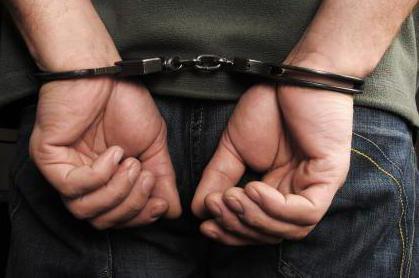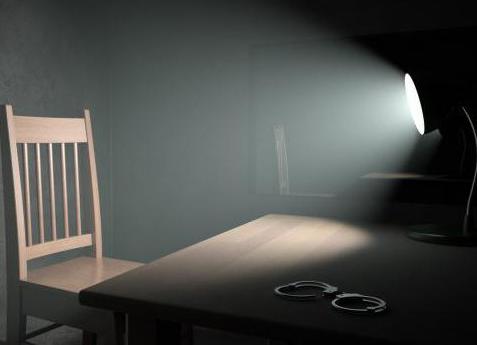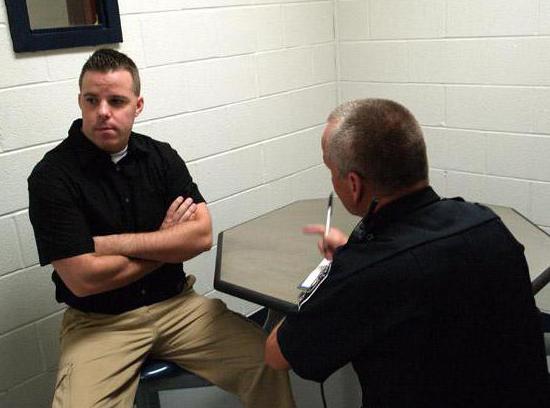Art. 100 of the Code of Criminal Procedure contains an indication that in exceptional cases even a preventive measure is applied to the alleged attacker. In addition, if the latter was detained by law enforcement officers, and then taken into custody, then he must be charged no later than ten days. This suggests that the suspected person cannot be in captivity longer than the time prescribed by law, otherwise it will be a serious violation of the law. The charge of at least one of those criminal acts referred to in the second part of Art. 100 Code of Criminal Procedure, presented to the alleged attacker in a period not exceeding forty-five days. Learn more about all this from this article.
Main

Art. 100 of the CPC contains an indication that in exceptional situations a preventive measure is taken against a person suspected of having committed an offense. This is usually done only when the alleged offender may be absconding from the court and investigation, or will continue to engage in illegal activities, or will threaten the participants in the process.
When making a choice of a preventive measure in relation to a suspected person, it is necessary to take into account his age and personal data, occupation and marital status. Also in such a situation, the severity of the atrocity is of great importance.
Important

If a measure of restraint is applied to the alleged offender, then he must be charged no later than ten days. In the case when the latter was detained and then taken into custody, then at the same time, but from the moment of detention. This rule is spelled out in Art. 100 Code of Criminal Procedure.
If no charge is brought against the suspect during this time, then he must be released from custody. Otherwise, the latter will be in captivity in violation of all the norms of the CPC.
Interesting
The accusation of such criminal acts as a terrorist act, banditry, the promotion of terrorist activities, hostage-taking, organization of an armed formation and community, participation in them, attempted murder of a statesman, commission of an act of international terrorism must be brought against the alleged attacker no later than forty-five days after applying to him a certain preventive measure. This is written in Art. 100 Code of Criminal Procedure.
If a suspect in the implementation of one of the above acts was detained by law enforcement officials and detained in custody, then he must be charged in a period that will also not exceed 45 days, but only from the moment of detention. This is the order.
If no charge has been brought against the alleged attacker within the specified time period, the preventive measure is immediately canceled. This confirms Art. 100 Code of Criminal Procedure.
Comment

So, it turns out that the application of any preventive measure to the alleged attacker is an exceptional phenomenon, which is limited by the time limits established by law. Then, within ten days, the latter must be indicted. This confirms Art. 100 Code of Criminal Procedure. One cannot disagree with the comments on it. Moreover, it is also necessary to add here that if at the end of ten days the suspect is not charged, the preventive measure is immediately canceled.
This norm of the law is also confirmed by the fact that a person cannot be in the detention center for longer than a specified period of time. If the suspect was formally charged within ten days, then the rules of the law governing the detention of the accused come into effect.This is the order.
If a person is suspected of carrying out terrorist activities, banditry, then the latter should be charged within forty-five days. This is stated in Art. 100 Code of Criminal Procedure. The comments of 2016 here also cannot but agree. Moreover, if a suspect in the commission of one of such acts was taken into custody, then the specified period will be calculated from that moment.
On practice

As already mentioned earlier, only in exceptional situations can a preventive measure be taken against a person suspected of having committed an offense. Most often this is done when the alleged attacker leads an asocial lifestyle, does not have a specific place of work and residence. In other words, the latter may hide from the court and the investigation or continue to engage in his illegal activities. In order to prevent this from happening, a preventive measure is taken against the suspect. If the alleged attacker, according to the investigation, committed a minor act, then he is under recognizance not to leave the place of residence. Detention is an exceptional preventive measure. Most often applied to persons who have committed serious and violent crimes.
Total

So, it is necessary to remember that in exceptional cases, a preventive measure is chosen even for alleged attackers. This is what is discussed in Art. 100 Code of Criminal Procedure. In the new edition of this article, nothing has changed much.
It should also be noted that a law enforcement officer cannot be sure with certainty that it was the person suspected of the crime that committed the crime. Because enough evidence has not yet been gathered to confirm his guilt. The defendant at that moment does not have the status of an accused. Nevertheless, the available data on his personality and lifestyle may cause one of the preventive measures to be taken against him.